More about the exhibit was published in The Scientist
Steph Nowotarski, an artist and postdoc in Alejandro Sanchez Alvarado’s lab at the Stowers Institute for Medical Research in Kansas City, Missouri, studies how planarian flatworms (class Turbellaria) regenerate. “[I] can cut a 1 cm worm into multiple pieces, and each piece, regardless of where in the animal it was taken from, will make a whole new animal in just 14 days,” she says in an email to The Scientist.
Nowotarski is teaming up with other Kansas City–based artists to create an exhibit inspired by flatworm research in the University of Missouri–Kansas City Gallery of Art. Read more.
Oct 31, 2019
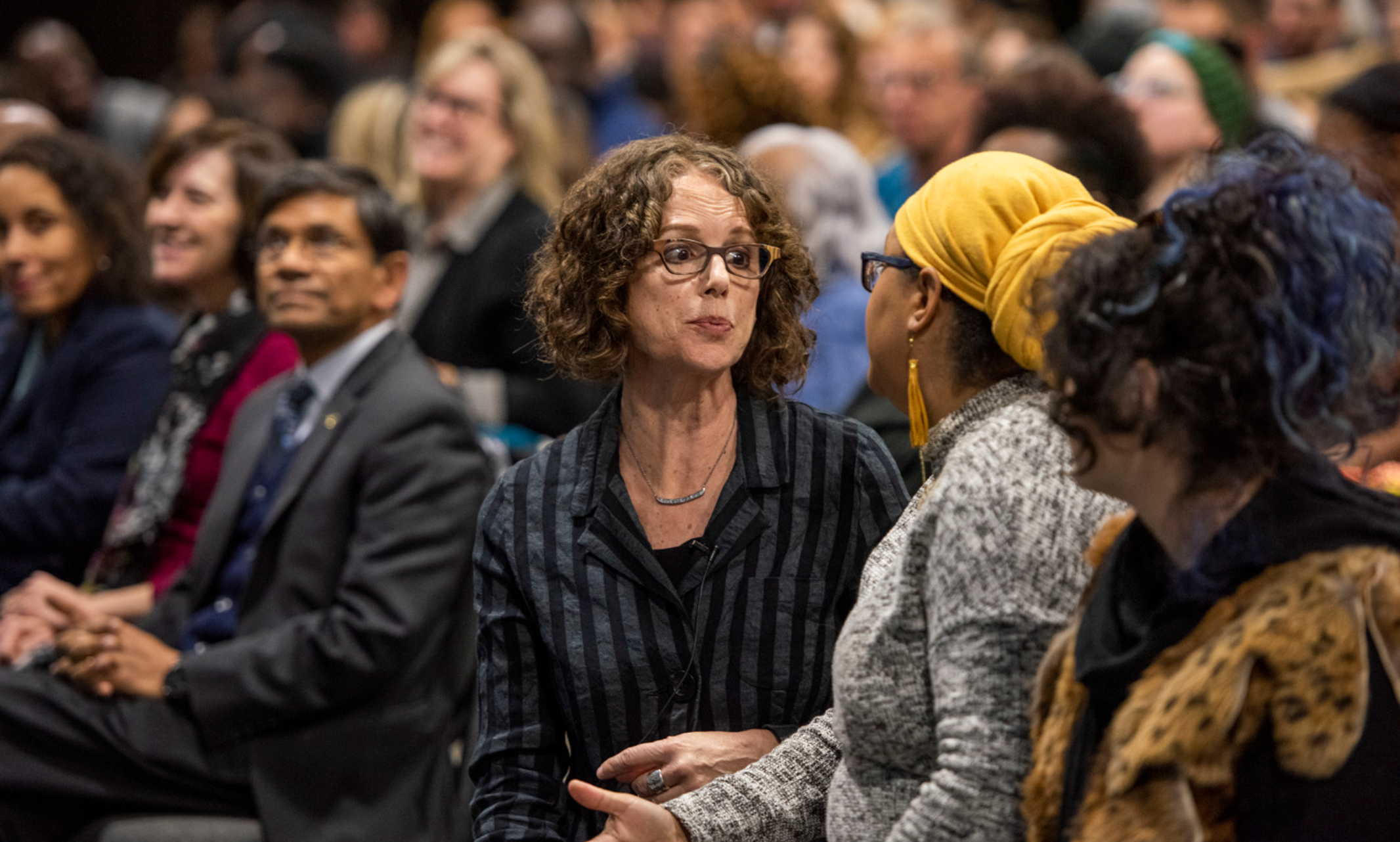
‘Racism is a System, Not an Event’
Author and scholar Robin DiAngelo, Ph.D., examined the unconscious and unintentional forms of racism at UMKC Diversity and Inclusion’s 13th annual Social Justice Book Lecture.
DiAngelo is an associate professor of education at the University of Washington, and has been an educator and trainer on issues of social justice for over 20 years. Her book, White Fragility: Why It’s So Hard For White People To Talk About Racism, was released in June of 2018 and debuted on the New York Times Bestseller List.
At the Social Justice Book Lecture, DiAngelo explained to a capacity audience that many white people simply do not understand the true nature of racism. They think of racism as deliberately offensive acts committed by people with clearly hurtful intent. Since they do not commit or condone such behavior, they believe they are not racist.
What they miss, DiAngelo said, is that they live in, and benefit greatly from, a system that provides enormous advantages to white people from cradle to grave, in areas ranging from education to careers to health care to justice. Those advantages confer on white people a responsibility to educate themselves on the racist nature of society and its impact, and to approach that responsibility from a position of humility.
“Niceness is not anti-racism.” – Robin DiAngelo
Numerous scientific studies over many years have demonstrated that all people carry unconscious biases, DiAngelo said; the difference for white people is that their biases are supported by legal authority and powerful institutions.
Defining racism as intentional individual actions, she said, actually helps perpetuate the systemic racism of society by diverting attention away from it.
“The white experience is deeply separate and unequal,” she said. And while white progressives often attribute racist actions and intent to conservatives, “white progressives produce the most daily toxicity for people of color.”
“We are the ones who send our co-workers home every evening with stress, wrestling over whether they should address the unconscious indignities they endure from us.”
DiAngelo’s closing thought: “Niceness is not anti-racism.”
“Focusing on intent allows us to avoid taking responsibility for impact.”
About the Social Justice Book and Lecture Series
The UMKC Division of Diversity and Inclusion’s Social Justice Book and Lecture Series brings to campus thought leaders from across the country and various fields to explore issues of social justice with our students, faculty and staff. The objectives of the series are to:
Foster a sense of community on our campus through shared literature and relevant dialogue.
Prompt participants to think critically about the historical context of social justice issues while focusing on current social justice challenges and the interdisciplinary thought and leadership skills necessary for solving such challenges.
Provide a platform for further reflection, dialogue and action within our campus and greater communities through related coursework, gatherings and exposure to local, regional and national social justice projects and initiatives.
Oct 30, 2019
Kansas City religious leaders grapple with the notion of ghosts
A few locations routinely pop up when taking inventory of haunted places in Kansas City.
The most legendary of all local haunts is the Epperson House on the University of Missouri-Kansas City campus, according to Darren Hinesley, a local expert on Kansas City hauntings and host of the podcast Creepy in KC. Hotels such as the historic hotel Savoy and places of worship such as St. Mary’s Episcopal Church also are thought by some to be scenes of paranormal activity. Read more.
Oct 30, 2019
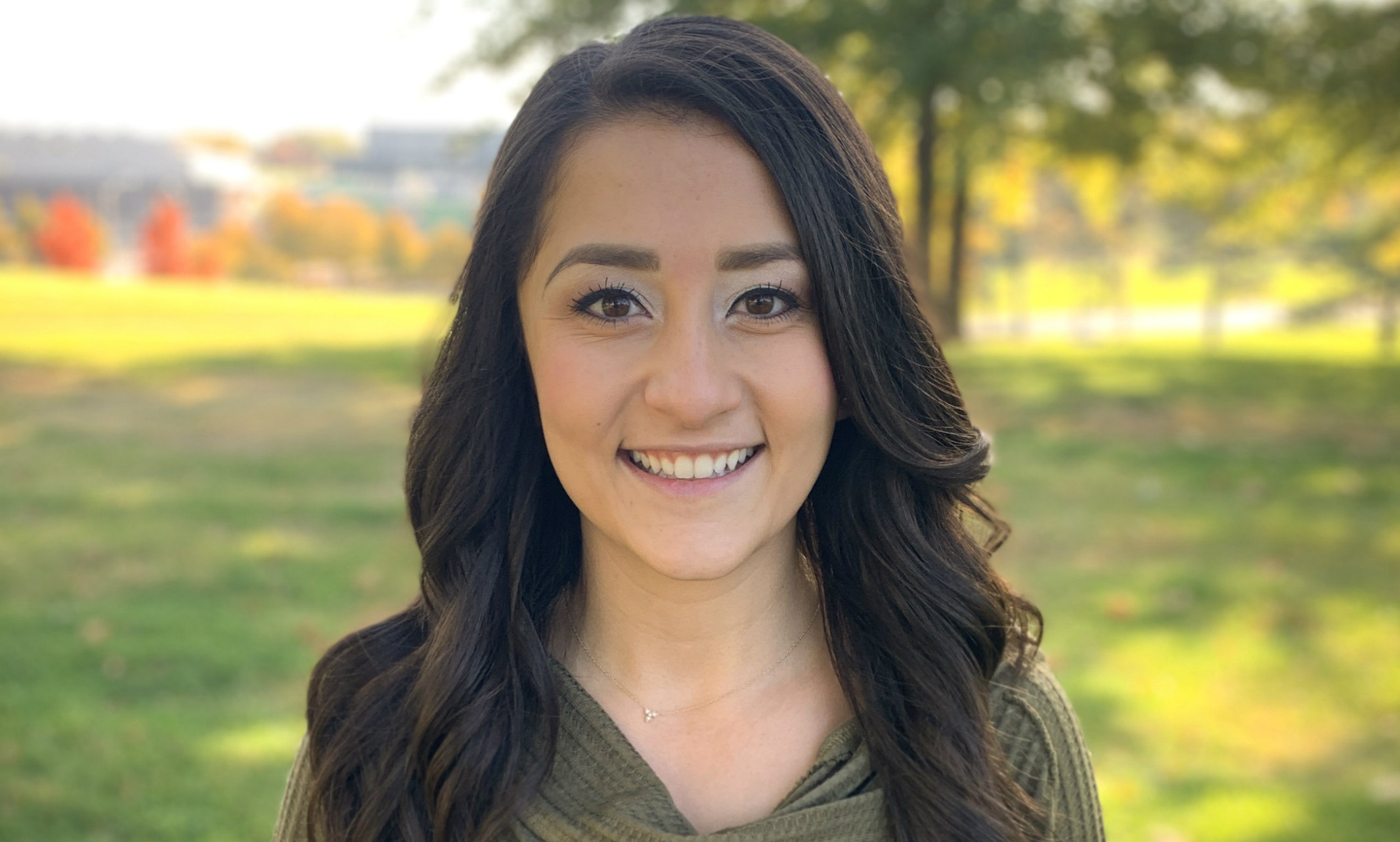
Patient came for a filling, left with a son
The email subject line to UMKC School of Dentistry faculty read: “There is no limit to what our students can do!”
The email detailed something completely unexpected that happened on fourth-year dental student Aliah Haghighat’s first day of an externship rotation at Samuel Rodgers Health Center in Kansas City.
“It was definitely a day I will never forget,” Haghighat said.
Oct. 21, 2019
It was Monday morning, the first day of her new externship, and Haghighat was eager to treat as many patients as she could. A woman was her second patient of the day, and everything was going great with prepping her tooth. As Haghighat stood up to get the lead doctor to check her work before the filling, the patient exclaimed that her water broke.
Haghighat ran to tell the doctor, and then went straight back to help her patient. She remembers the woman was off the dental chair and was worried about the water everywhere. Haghighat assured her that it was going to be okay, and made efforts to try to call someone to give her a ride to the hospital. At this point, the lead doctor went to the other side of the clinic to get more help.
“It was definitely a day I will never forget.” -Aliah Haghighat
Soon after, Haghighat remembers the patient saying the baby was coming and then jumping back on the dental chair. The only other people in the room at the time were Haghighat and a dental assistant.
“We were both in shock and in disbelief of what was happening,” Haghighat said.
The woman exclaimed “grab my baby,” and both Haghighat and the assistant reached down to grab hold of the baby boy and handed him carefully to the mother. The baby was crying and had a full head of hair.
About 10 seconds later, the lead doctor came back and saw that the baby was delivered. She immediately called 911, and at this point, many providers from women’s health including a doctor came to help.
Haghighat and the others used equipment to suction the baby’s mouth and covered both mom and baby in personal protective equipment gowns to keep them warm.
“The patient only spoke Spanish...Thankfully, I am fluent in Spanish and was able to speak to her to keep her calm and translate for her as well.” -Aliah Haghighat
The paramedics arrived within 10 minutes. The baby opened his eyes to a room full of people trying to help. The paramedics cut the cord and rushed the mom and baby boy to the hospital.
“The patient only spoke Spanish so this entire incident was happening in Spanish,” Haghighat said. “Thankfully, I am fluent in Spanish and was able to speak to her to keep her calm and translate for her as well.”
Haghighat thought back to a UMKC School of Dentistry course she took, Medical Emergencies, that prepares dental students for incidents that could occur in the dental chair. And this isn’t the first time she’s had to put what she learned in that course to work. Last year, Haghighat had a patient who had a 5-minute-long seizure in the UMKC dental clinic.
“Although delivering a child was not a part of the curriculum, I feel that this class and the experience with a patient who had a seizure helped me remain calm,” Haghighat said.
Nearly a week later, Haghighat remains both delighted and amazed at having helped deliver a baby.
“I am overwhelmed with joy that everything went okay, and that both the mom and baby are healthy and happy,” she said.
She called the patient’s husband later that day to make sure everyone was doing well.
“This is an experience I will never forget, and I know now that I will be able to handle any situation while practicing dentistry,” she said.
She has no thoughts, though, of switching her studies from dentistry to obstetrics.
“I am definitely in the right profession.”
Oct 28, 2019
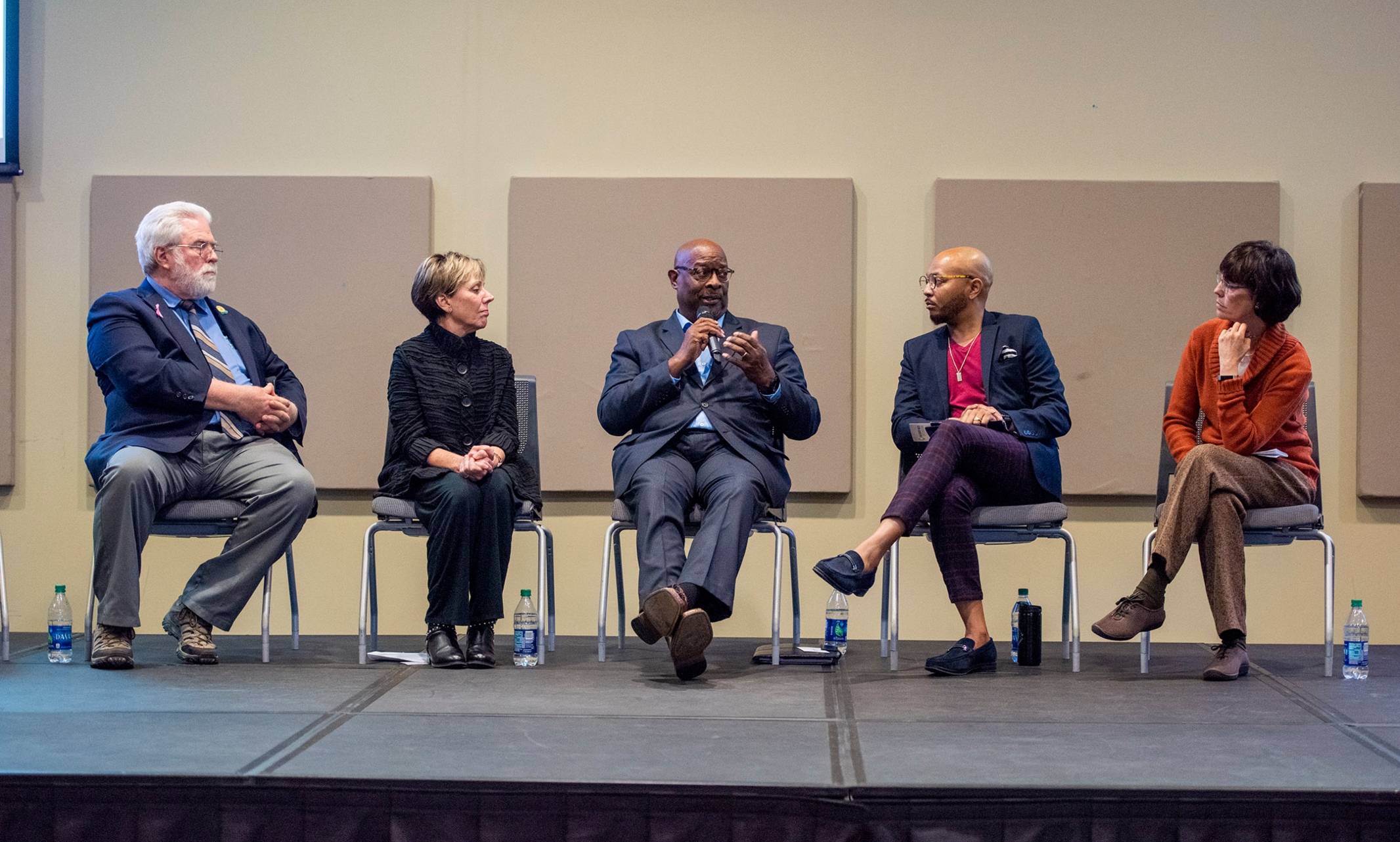
Community leaders discuss UMKC efforts to close gaps
Health equity is a broad concept that encompasses differences in disease and mortality rates, and in access to healthcare services, among different population groups. It also includes differences in social determinants of health, such as poverty, exposure to toxins and access to healthy food.
UMKC leadership quantifying and addressing these differences was the focal point of the UMKC Engagement Showcase, the university's signature event celebrating Engagement Week – a special week of engaged leadership, partnership and learning hosted by UMKC and the UM System.
The event included a demonstration of the System’s new online Engagement Portal and a panel discussion on health equity led by the director of the new UMKC Health Equity Institute, Jannette Berkley-Patton, Ph.D., of the UMKC School of Medicine.
Engagement with community partners by the UM System and its four universities is hardly a new phenomenon. Curt Crespino, UMKC vice chancellor for external relations and constituent engagement, noted that UMKC history is rooted in an enduring city-campus partnership.
Marshall Stewart, chief engagement officer for the UM System, said what’s new is a more systematic and coordinated approach to engagement, including a transformation of the system’s Extension programs, designed to expand engagement beyond Extension’s original rural focus to forge engagement partnerships in every community and corner of the state.
“Urban and rural communities are facing very similar issues across Missouri. Our mission is to work together with all of our stakeholders to expand our impact by using our research to help transform lives,” said UMKC Chancellor Mauli Agrawal. “That spirit of connection to the city and engagement with our community was woven into the origin story of UMKC. And we are excited to take those efforts to the next level in collaboration with the efforts being led by the system.”
Following are excerpted highlights of the health equity panel.
Jannette Berkley-Patton, director, UMKC Health Equity Institute:
“We spend billions on healthcare but are still one of the unhealthiest countries in the world.” The burden of health disparities rests primarily on groups outside the mainstream, including people of color, rural communities, veterans and seniors. Large federal grants allow for the creation of effective programs, “but what happens when the grant ends? Everything goes away. We need to figure out how to take the Cadillacs we create with these million-dollar grants and turn them into Pintos.”
Rex Archer, director, Kansas City Health Department:
“We need to change the structural issues that create the (health equity) problem.” These include issues with disparities in housing, poverty, education, safety and more.
Mary Anne Jackson, interim dean, UMKC School of Medicine:
In 2014, the Kansas City area had to contend with a large outbreak of a serious respiratory illness among school-age children. Researchers were notified early enough to identify the virus responsible and contain the outbreak. “We were able to address this in time because of the strong connections we have with people in the community who brought it to our attention.”
Eric Williams, pastor, Calvary Temple Baptist Church:
Conducting funerals for victims of gang violence and AIDS led Williams to involvement in public health. “Conversations about HIV were happening, but it was all on the down-low. (Berkley-Patton) helped us to understand that some of the things we were already doing were working” to change behaviors.
Rashaan Gilmore, founder and director, BlaqOut:
BlaqOut surveyed gay African Americans about their health care priorities, and the top response was health care access. “It was because they didn’t feel welcomed by traditional providers. We asked them to recommend strategies to address that, and we developed interventions based on those results.”
Bridget McCandless, former president and CEO, Health Forward Foundation:
After 15 years working in a free health clinic, she changed her approach from providing care to impacting policy “because I saw that policy could be far more effective.” Citing a sampling of dramatic health disparities between local white and black populations, she said “there’s no excuse for us to have disparities like that.” Data analysis can empower highly effective strategies if we act on the findings. “We’re getting smart enough to figure this out. (Data-driven policy) can be the new germ theory; it can revolutionize the delivery and effectiveness of health care.”
Oct 28, 2019
Psychologist Carolyn Pepper of UMKC Counseling Services was a guest
A mental health diagnosis for one person can inadvertantly affect their family members and caretakers, and lead to confusion, concern and guilt. One mother shares her experience in caring for her adult daughter, whose bipolar disorder and schizophrenia often manifested itself as violence and tension. Her suggestion to other caretakers is to seek support. "I can't help her before I can help myself," she says. Listen here.
Lori Mitchell, mother and caretaker of someone diagnosed as bipolar-schizophrenic
Carolyn Pepper, psychologist, UMKC Counseling Services
Oct 28, 2019
Shacura Wade is part of the national tour of The Lion King
For Shacura Wade (B.F.A. ’15), the journey after graduation has been unexpected.
“I thought the Broadway world was very cheesy and over-commercialized, so I didn’t think it had a place for me,” Wade says.
But she had a change of heart two years ago, when she was cast as an ensemble member in the national tour of The Lion King. Now she performs on stages across the country, spreading a message she deeply believes in.
“I always wanted to be a part of something that had a deeper meaning, and The Lion King is such a spiritual show,” Wade says. “It has a great story about unity and how everything is connected.”
It also allows her to combine her love of dance with two other talents: singing and acting. Wade says the Conservatory curriculum helped prepare her for her current role because she was able to take classes in other performing arts disciplines, like music.
“You don’t always get that variety at a lot of schools,” Wade explains. “That’s why [the Conservatory] produces such well-rounded dancers in general.”
She also credits her teachers at the Conservatory for helping her develop skills that set her apart in auditions.
“It’s a passion, it’s a hunger, it’s a confidence, it’s a boldness I feel as though I learned from the faculty,” Wade says. “You don’t really realize it when you’re in school, training every single day, and you’re exhausted. But when you get out in the world and allow your training to speak for itself? It separated me a lot."
This story originally appeared in Encore, the UMKC Conservatory magazine.
Oct 25, 2019
Nov. 13 dinner celebrates the power of expression through creative writing and reading
KANSAS CITY, Missouri — Kevin Willmott, the Academy Award winning screenwriter from Lawrence, Kansas, will be the featured speaker this year at the annual Writers for Readers dinner at the University of Missouri-Kansas City.
Willmott will discuss his screenwriting and filmmaking career, including his work on “BlacKkKlansman” and other collaborations with director Spike Lee, with local scriptwriter Mitch Bryan and author Whitney Terrell, UMKC associate professor of English. Kansas City Mayor Quinton Lucas is also scheduled to speak.
Writers for Readers is an event celebrating the power of expression through creative writing and reading. Proceeds benefit a new creative writing initiative co-sponsored by the Kansas City Public Library and UMKC, providing scholarships for UMKC graduate students in Creative Writing. The students will be teaching creative writing classes for underserved populations at the Kansas City Public Library and helping the library organize a new literary festival and a new literary award.
Writers for Readers will take place at 6:30 p.m. Wednesday, Nov. 13 in Room 401 of the UMKC Student Union, 5100 Cherry St. Tickets include dinner, open bar and admission to the event. For tickets, click here.
Oct 25, 2019
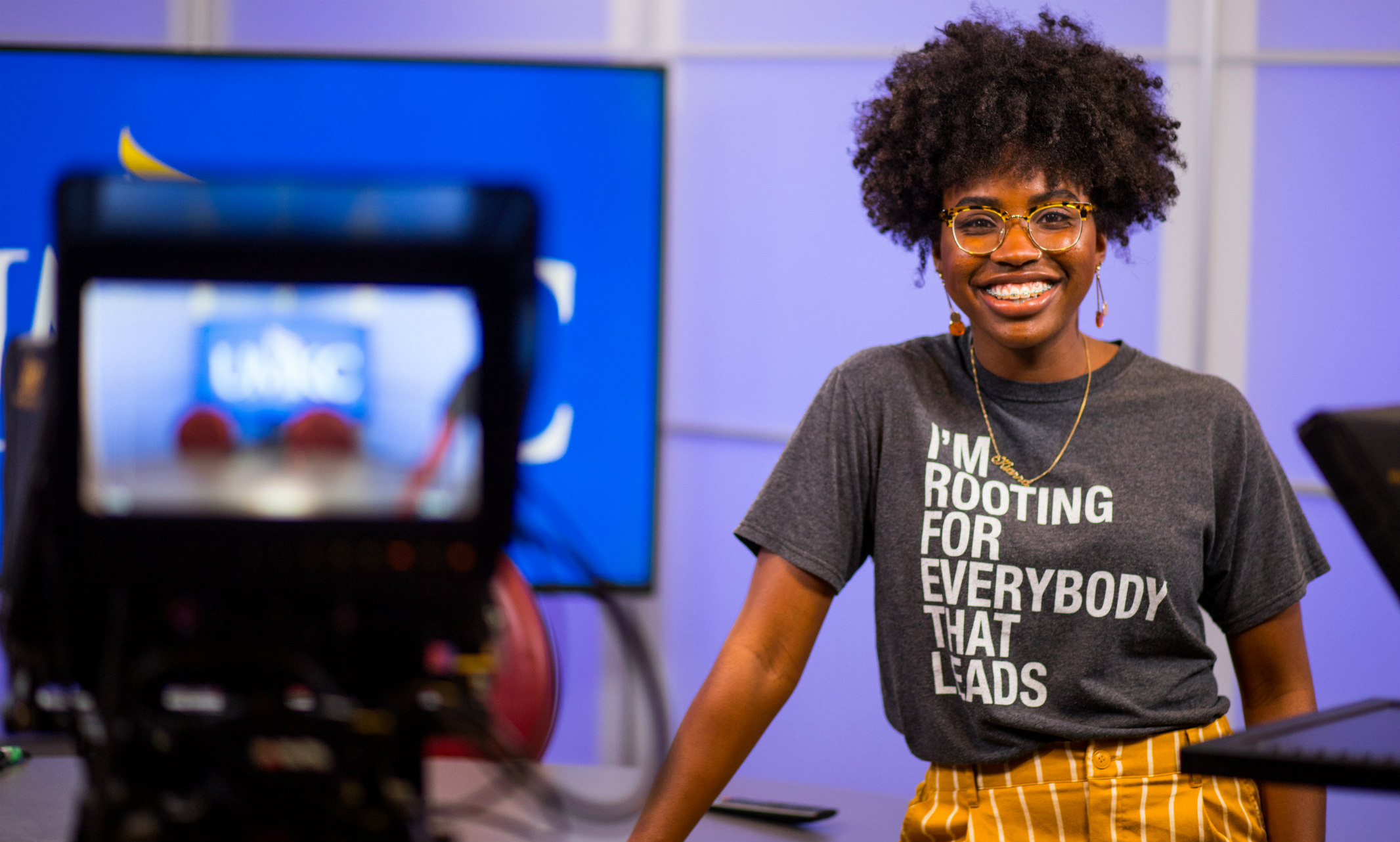
How positivity and creative thinking are making Kiarra's dreams come true
Our ongoing story starts with people from around the world, converging here at UMKC. Get to know our people and you’ll know what UMKC is all about.
Kiarra Brown-Edwards is the entertainment publicist you want to meet. Recently named among the 2019 class of Forbes Under 30 Scholars, the former Conservatory dancer turned Communication Studies student has made it her mission to serve as a voice for the culture. And she isn’t afraid to get creative to make her dreams come true.
Kiarra Brown-Edwards '19Hometown: Kansas City, MissouriHigh School: Paseo Academy of Fine and Performing ArtsUMKC degree program: Communication Studies
Why did you choose UMKC?
I transferred to UMKC as a dance major in the fall of 2016. I loved how elite the conservatory is here. I eventually changed my major from dance to Communication Studies because there’s so much more I want to do. People need to hear me. I realized, then, how great the Communication Studies department actually is.
Choosing UMKC was a great decision for me. Not only do I love the people here, but I love that there are a great deal of faculty and staff who want you to succeed just as much as you want to succeed. College can be tough and the “real world” is tougher. At UMKC, students are accepted for who we are as individuals.
Why did you choose communications?
I chose to be a mass communications major because I enjoy, and also understand, the importance of being a voice for black and brown people. Whether it be politically or in the realm of entertainment, people of color are either under-represented or incorrectly represented, and I want to change that. The media industry always keeps me on the edge of my seat. There is always something to be learned … or unlearned.
“Choosing UMKC was a great decision for me. Not only do I love the people here, but I love that there is a great deal of faculty and staff who want you to succeed just as much as you want to succeed.”
What are the benefits and challenges of the program?
The benefit of this program is being able to get that much needed one-on-one time with professors. In media, we have to put in extra work to perfect our craft no matter our focus. Being able to get that extra help or a pep talk from professors, who are also professionals, is a benefit that I value greatly.
My challenge with this program is not having professors who look like me. Though I find a majority of Communication Studies professors valuable and an asset to students, I think it’s also important to not only maintain the diversity among students and professors alike. My experience as a black woman in media will be different than others in the same field. And not because I want it to be, that’s the reality.
How do you find mentorship and connection in your field given that a lot of your field given that a lot of your professors themselves don’t look like you?
I'm an active student member of the National Association of Black Journalists. It literally provides black students with everything we need in this field. Being a member has helped me meet other black professionals in media.
Since entering college, what have you learned about yourself?
Since entering college, I’ve learned how hard I will work for something that I believe in, no matter if anyone else believes it or not. I don’t settle for anything that I believe is less than what I deserve. This mindset, and knowing how to communicate this in the proper manner, has granted me many life-changing opportunities.
“LinkedIn is the plug!”
Since transferring to UMKC I have been actively involved with campus organizations. I was the president of Sister Circle, an organization for women of color from May 2016 to May 2018. Now I support by being a general body member. I am also a general body member of The African American Student Union and am also a contributing writer for U-News. On Tuesdays at 4:30 p.m. I have a radio show on K-Roo radio, “Your Weekly Dose with Ki & Los,” where we talk about culture, what’s happening around campus and current events in mainstream media.
Wow! You do a lot on campus. What about off campus? Have you had any internship experiences?
I have had a nice amount of valuable internships. I am currently a public relations and marketing administrative intern for IMPACT Strategies, a political advocacy firm founded by NPR Political Analyst and CNN commentator Angela Rye. My job is to oversee incoming interns, pitch ideas, news releases, prepare briefs and network with my across the country. There are several college students who intern remotely. Shout out to NABJ for giving the confidence to apply.
My second gig is working for BET Networks as a public relations/talent escort. I coordinate guest check-ins, assist production with red carpet setup, escort celebrity talent to the various media outlets and assist with in-house show production. I began working with BET at the 2018 Soul Train Awards in Las Vegas and have worked every award show since. Most recently, I worked the BLACK GIRLS ROCK! 2019 show and got to see Angela Bassett in the flesh! I’m proud that I didn’t freak out. We have to learn how to not freak out around celebrities.
I’ve also interned for a local television news station and help my friends with PR for the various projects and events they put on throughout the city.
“Be kind, you never know who you'll meet.”
You also recently received some big news -- your selection as a Forbes Under 30 Scholar. What does that mean to you?
It means a lot. Being chosen as a Forbes Under 30 Scholar, I am granted access to the Forbes 30 Under 30 Summit. This is one of the biggest leadership summits of the year with top-notch innovators and entrepreneurs. I will have access to leadership sessions and networking events with many of the amazing people who lead top companies we know of today.
There were over 2,000 applications for the Forbes Under 30 Scholarship Program and only a few hundred were chosen. I am proud to be one of the only scholars chosen from the Kansas City area. The Summit be held Sunday, Oct. 27 to 30 in Detroit, Mich. I will be in rooms with Serena Williams, Kevin Durant, and 21 Savage to name a few.
What are your plans after graduation?
My goal is to land a job or fellowship in entertainment PR. I want to move to Harlem, New York. I’ve been to New York a few times and loved it — though I was the only one walking down the street smiling at everyone. I love the culture in Harlem, though, and hope to land a job that’ll allow me to be there.
Which of your experiences at UMKC do you hope to take into your professional career?
At UMKC I have had the pleasure of building relationships with all kinds of different people. And I walk away from every conversation having learned something new. It’s because I am kind and don’t judge a book by its cover. Going into my professional career, this is something I will take with me; be kind, you never know who you’ll meet.
Oct 22, 2019
Kansas City poet Natasha Ria El-Scari is the author of 'Mama Sutra'
When it comes to talking about sex, the accepted wisdom is that parents and kids alike would just rather not. But Kansas City poet Natasha Ria El-Scari doesn't think that's healthy.
Neither does her college-age son, who says he's benefited from his mother's openness and candor in a way his peers are missing out on.
El-Scari attended a historically black college, then went on graduate studies at UMKC, ultimately leaving academia to become a writer and tell the stories of "ordinary black women."
The KCUR story ran in the Associated Press.
Oct 18, 2019
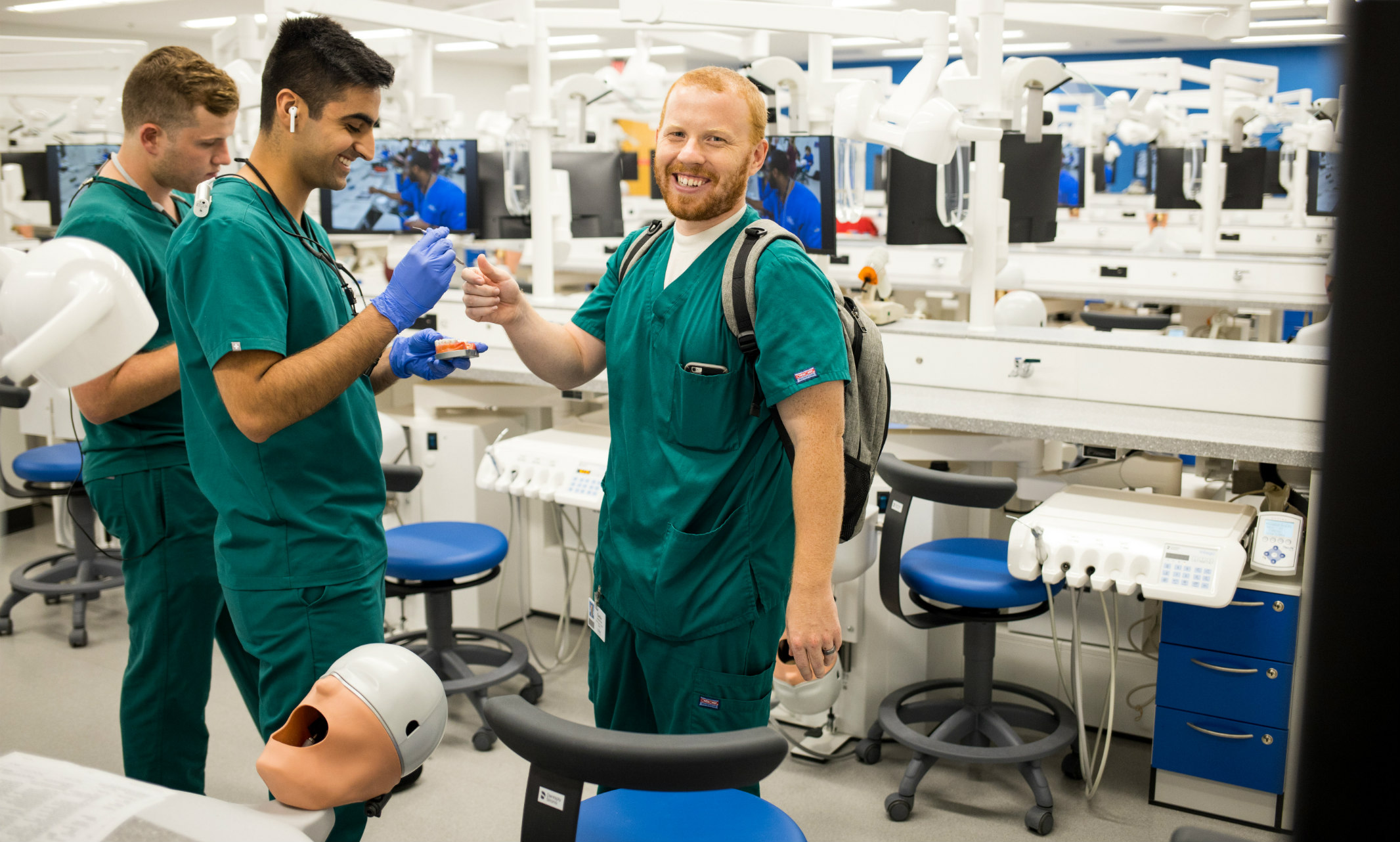
Simulation lab is the newest in the U.S. — and among the largest
The University of Missouri-Kansas City School of Dentistry now includes a new state-of-the-art training lab for students, thanks to a multimillion-dollar makeover. The dental simulation lab is among the newest in the U.S. — and the largest.
Before: first-and-second-year dental students worked on mouth models attached to metal rods, each euphemistically referred to by students as a “head on a stick.”
Now: 110 fully-equipped, ergonomically-correct work stations feature head-and-torso simulated patients. Each also includes water for rinsing and suction– like a real dental operatory.
“The lab is spectacular,” said Marsha Pyle, dean of the UMKC School of Dentistry, who has been advocating for the lab renovation for years. “This will give our students more real-life experiences before performing dental care on people.”
The students were impressed, too, when they got their first chance to check it out.
“The lab feels so open and bright now,” said Bryce Boyd, a second-year dental student, after her first class in the new facility. “It felt like being in a real clinical setting, being able to drill with water and having to position ourselves properly around a patient. Last year, instructors always emphasized posture and positioning, but with the new work stations, we have to practice those things. I also think it will make the transition much easier next year when we are working on real patients.”
Better ergonomic training — to eventually improve patient care and to help avoid disabilities later in dental careers — was a big reason why Pyle wanted the renovation. She also wanted to maintain the school’s reputation for high-quality instruction and its ability to recruit top students.
Pyle’s efforts to finance the $4 million project attracted substantial contributions from alumni, support from the school’s Rinehart Foundation and a generous match from the school’s Dental Alumni Association. The needed fundraising was completed when the Sunderland Foundation gave $2 million to the project, which not only included the lab renovation and equipment, but a new air handler and HVAC system for the space.
“It felt like being in a real clinical setting, being able to drill with water and having to position ourselves properly around a patient…I also think it will make the transition much easier next year when we are working on real patients.” – Bryce Boyd, student
Cynthia Petrie, DDS, the department chair who oversees the classes taught in the lab, said that besides teaching proper positioning, the new mannequins and dental simulators manufactured and installed by the Dentsply Sirona “also replicate all the orofacial structures as closely as possible to human conditions. The students can practice using and manipulating dental instruments and handpieces in the same way that they will later do intra-orally on a patient.”
Petrie said the stations also integrate training videos and simulated patient record-keeping software.
“The entire lab space has been designed to be conducive for student learning,” she said. “Each station has its own monitor where the student can view educational resources such as photos and example videos of the exercises that they will perform. The stations are set in a way that faculty can navigate around the room and observe the students’ performance and provide appropriate instruction.”
Student Nicole Kurlbaum, president of the school’s DDS Class of 2022, said: “I have worked as a dental assistant, and the new lab is much more like being in a real practice. I know years of planning and fundraising went into this project, and now we all can appreciate it.”
“The lab is spectacular. This will give our students more real-life experiences before performing dental care on people.” – Marsha Pyle, dean of the UMKC School of Dentistry
Oct 17, 2019
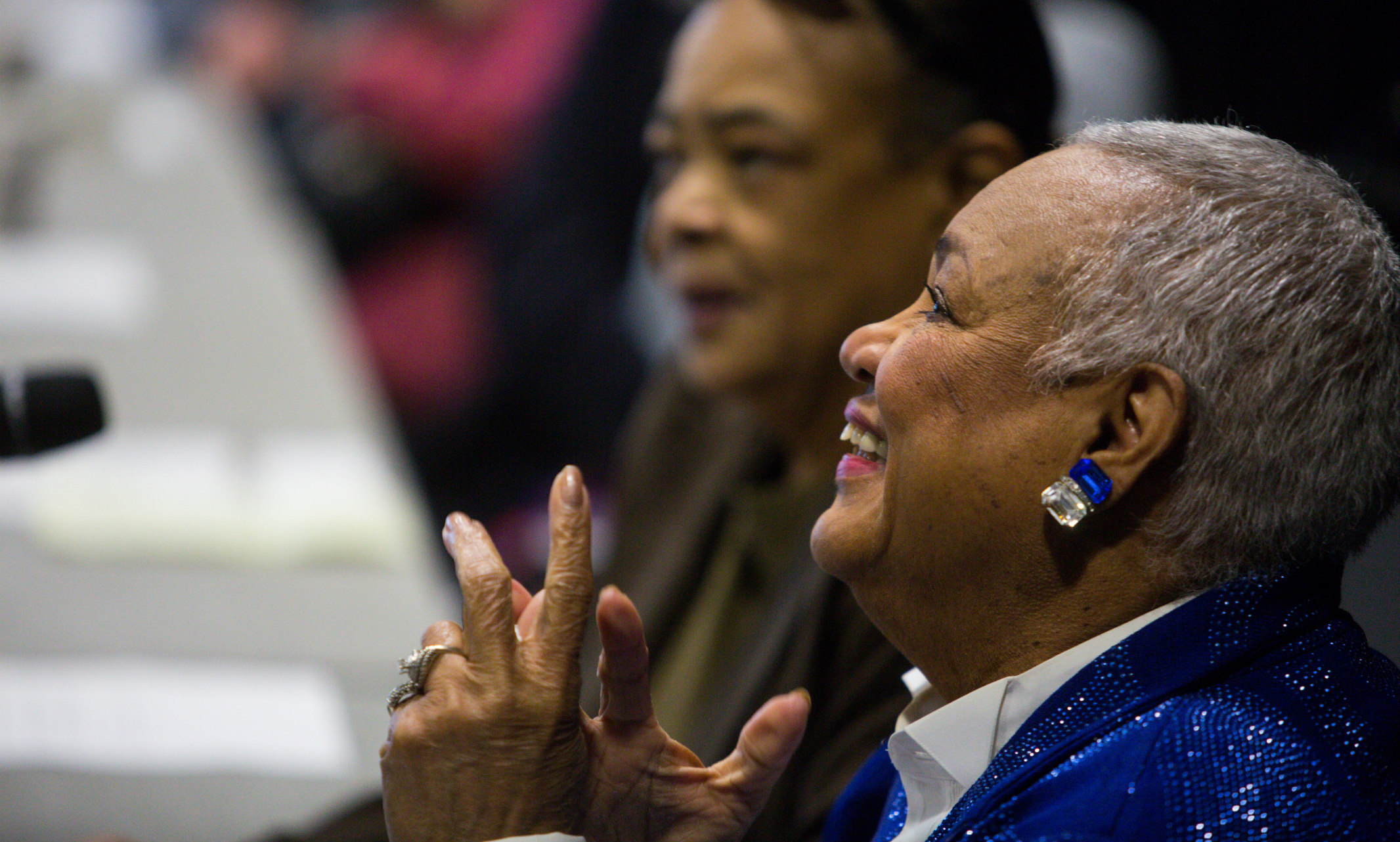
UMKC remembers alumna and advocate Yvonne Wilson
The University of Missouri-Kansas City is celebrating the life of former Missouri State Senator Yvonne Wilson (1929-2019) for her commitment and devotion to education, the university and the Kansas City community.
Yvonne Wilson (MA ’71, EDSP ’76) worked in the Kansas City, Missouri School District for 35 years as a teacher, principal and director of elementary education. In an interview with the UMKC School of Education she recounted always wanting to be a teacher.
“I started teaching neighborhood children on my grandmother’s steps,” she said of the house in her segregated Leeds neighborhood. “I’ve never been anything other than a teacher.”
Wilson attended Lincoln University and UMKC. She was an advisor to the UMKC School of Education and served on the advisory board for the Institute for Urban Education. The Missouri Association of Elementary School Principals recognized Wilson as a “Pioneer in Education” in 2007.
Wilson began her career during desegregation and was the first African American principal of Rockhill Elementary and the first African American to serve as president of the Missouri Association of Elementary School Principals. As a principal at Woodland School, she introduced Samuel Rodgers dental care to each classroom and ensured each child received care.
An advocate of early education throughout the district, she advocated for pre-school programs and was a proponent of Head Start.
A Starr Women’s Hall of Fame inductee in 2017, retired educator and Wilson’s nominator Marjorie Williams lauded the breadth of Wilson’s influence.
“Wilson’s educational leadership was undisputed and continued though her retirement and beyond.”
While Wilson was a teacher at heart, her community influence and broad career in education and public service exemplify her dedication to enriching the city through strong neighborhoods and schools. After retiring from education, she became a community activist, serving as a member of the Missouri House of Representatives and the Missouri Senate. As a tireless advocate for education, she was known for working across party lines.
Beyond her political commitments, Wilson volunteered for many community organizations including the Kansas City of Fountains Foundation, the Mid-America Regional Council Early Learning Board and the Kansas City Sister Cities Association.
Wilson led her classrooms, her schools and her community with a quiet courage and endless energy. She focused on understanding others’ views and developing relationships to further the success of individual children and broad constituencies. Her legacy will be a timeless reminder of the possibility of a steadfast commitment to a love of learning.
Wilson's services are scheduled for Friday, October 25, 2019. Details are available through Watkins Heritage Chapel.
Oct 15, 2019
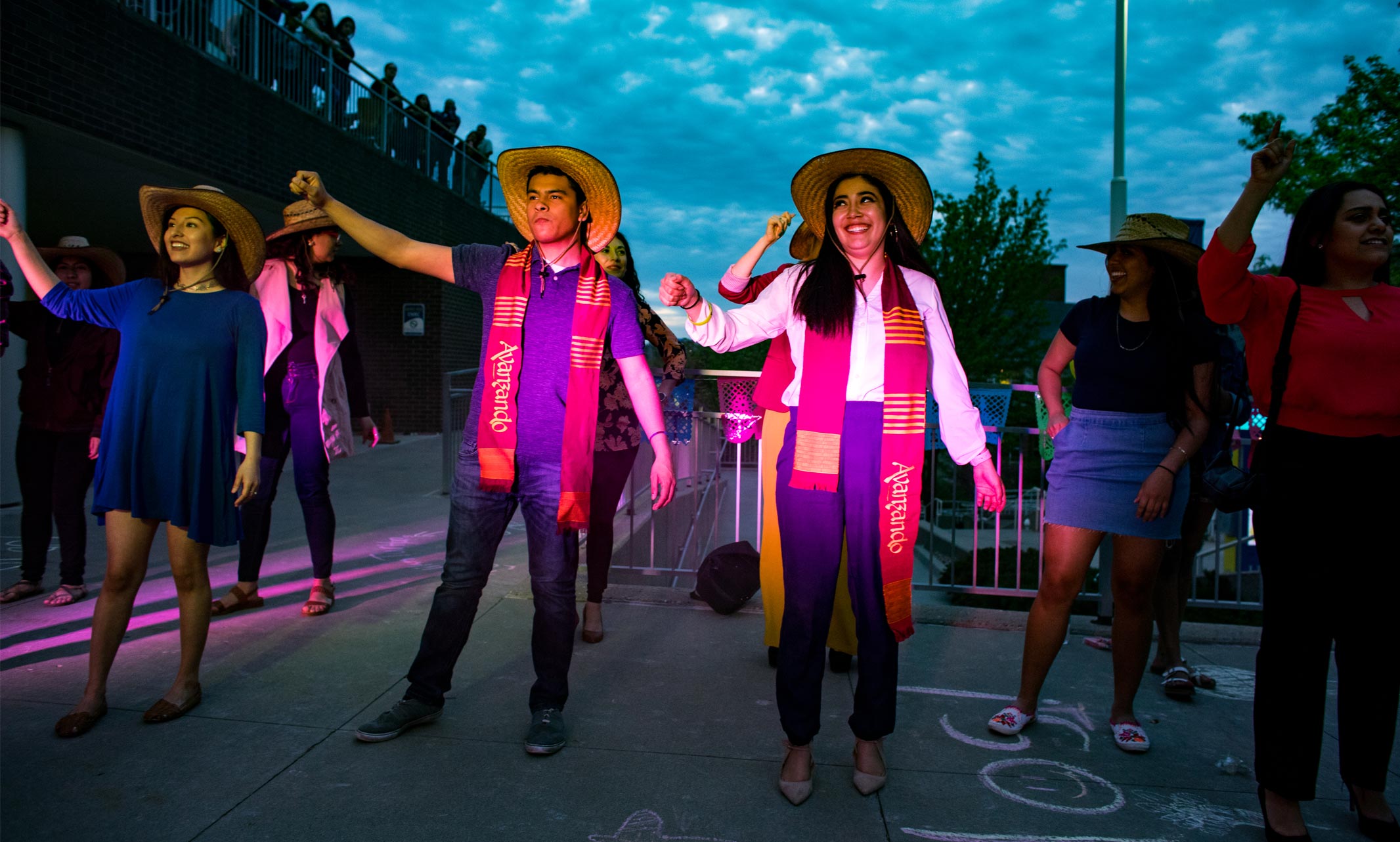
Celebrating beyond National Hispanic Heritage Month
As we wrap up National Hispanic Heritage Month, celebrating the influential and impactful contributions from those of Hispanic and Latino descent, we want to provide a quick list of resources for students looking to celebrate and connect throughout the rest of the year.
Every year during National Hispanic Heritage Month, we enjoy listening to speakers through the César Chávez Lecture Series and attending campus and community events with food and music from the Latinx perspective. Celebrating culture, traditions, history and heritage is important to us at UMKC. And it’s important these students know they have access programs, organizations and opportunities to make them feel at home.
Here is a list of some of the Hispanic and Latinx resources at UMKC.
UMKC Division of Diversity and Inclusion
The Division of Diversity and Inclusion thrives through the principle of teaching and learning through the broad areas of diversities within race, gender identity, sexual orientation, culture, nationality, learning style, educational level, life experiences and more. Events and programming engage students in socially constructed conversations and topics important to the multi-faceted purpose of culture.
Multicultural Student Affairs
Success is a key element for Multicultural Student Affairs. Aimed to encourage the value of diversity, the organization offers services such as a lounge and study meeting and event space for students to interact and fulfill academic goals. Additional programs such as monthly celebrations, staff-student academic check-ins and multicultural presentations serve to broaden students’ leadership roles and skills.
Avanzando
With over a hundred students and growing, Avanzando offers individualized support in increasing scholar retention, improving graduation rates and assuring a smooth transition into graduate school and careers post-graduation. Avanzando scholars are matched with a like-minded mentor who will link them to campus and outside resources beneficial to their future. Annual events throughout the year include leadership summits meant to embrace the Latinx identity and offer interactive workshops and self-development resources. The Avanzando Program is designed to support all Latinx Students on campus as well as Hispanic Development Fund and Agapito Mendoza Scholarship recipients
Mi Gente! For and With Latinx
For students who identify as Latinx, MiGente is a safe space for those to discuss acceptance of identity and important issues and topics touching the Latinx community and on campus. MiGente furthers the interest and celebration of the diversity within Latinx and Hispanic culture; creating social opportunities for those who are members. Contact Diversity and Inclusion or the employee affinity group MiGente for more information.
Latinx and Latin American Studies Program
Through the Latinx and Latin American Studies Program, students uncover the diversity of Latinx cultures within the U.S. and Latin America. Those enrolled are also connected to those within their culture who reside throughout Kansas City. Student interest in research, history and further expanding their education of Latinx culture is greatly supported through multiple internship and fellowship opportunities to finance their studies.
Hispanic Law Students Association
Created with the goal of diversifying the legal community, the Hispanic Law Students Association provides an array of networking opportunities through enforcing professional development skills and resources. HLSA, through fundraising and the importance of inclusion, works to increase support and membership in hopes of encouraging minorities in law.
Latino Medical Student Association
The mission of the Latino Medical Student Association is to create effective care for Kansas City’s growing Hispanic population and those of other underserved communities. Members of the association participate in community service activities and events (i.e. health fairs, informative sessions) benefiting the wellbeing of Kansas City community members.
Spanish Department
The Spanish Department offers multiple resources for students interested in effectively learning and using the language. In addition, they offer courses on Iberian, Latin American and South American culture, history and politics. The department’s faculty offers courses and conduct research on topics centered around and from the Spanish Golden Age, to contemporary Argentine culture.
Association of Latino Professionals for America at UMKC
The Association of Latino Professionals for America serves as a connection for Latinx leaders who are passionate about making an impact. With the goal of empowering and developing social and practical skills for Latino men and women in order to become leaders of character for their communities, the organization has been able to provide internship and career opportunities for its members.
Sigma Lambda Gamma
This historically Latina-based national sorority is committed to providing an outlet to all-things women empowerment. Their sisterhood strives to take responsibility and action within their global communities by implementing morals, ethics and education into their daily lives to serve as neighbors to other cultures through mutual respect and philanthropy. Get more information on requirements and the story of Sigma Lambda Gamma.
Latinx Student Union
Latinx Student Union is the base organization for Latinx students, culturally and socially. Students are impacted by an array of beneficial, lifelong skills dedicated to leadership, professionalism, unity, and strength. In addition, the organization work toward the goal of bringing awareness to UMKC students and faculty’s view and contribution to the Latinx community.
Oct 15, 2019
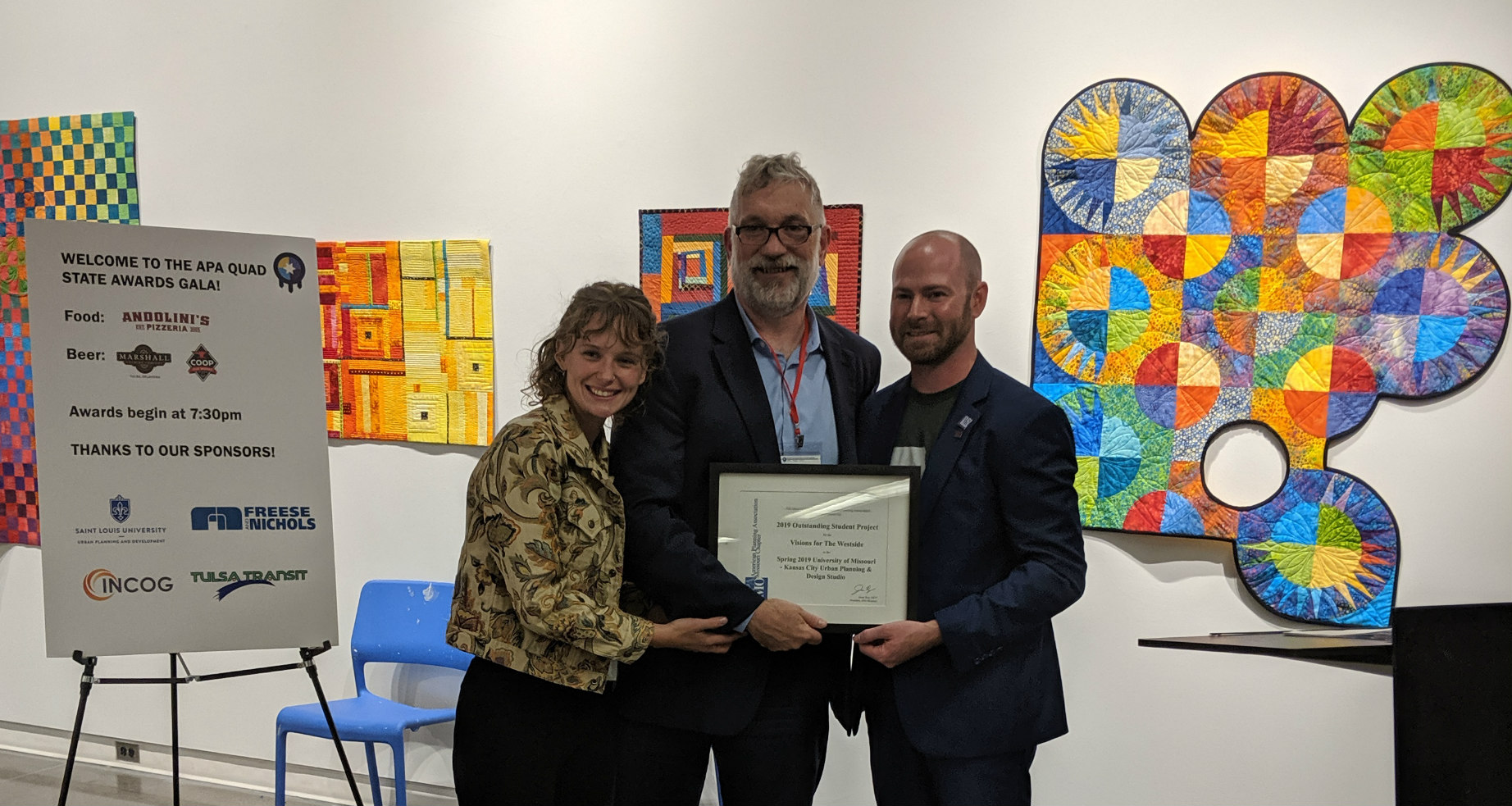
Fall 2018 Planning Studio class develops plan for the Westside
Eight UMKC Architecture Urban Planning + Design students received the Missouri State American Planning Association Outstanding Student Project Award for “Visions for The Westside.”
The project was part of the Fall 2018 Planning Studio class, and was completed in collaboration with the Hispanic Economic Development Corporation. The award recognizes an outstanding paper or class project that demonstrates the contribution of planning to contemporary issues; best applies the planning process; or applied planning research.
Through research, the Planning Studio class found that the Westside, as other inner-city neighborhoods and particularly minority neighborhoods, has historically been affected by urban renewal, freeway construction projects and disinvestment, creating challenges that persist today. In addition, the Westside is experiencing gentrification as it attracts interest from contemporary downtown planning revitalization efforts and real estate pressures. Their findings showed as a demographic group, Latinx people face specific challenges that also demand planning interventions.
The students synthesized the challenges and selected a few to focus on more deeply. They then searched for precedents of planning interventions that were successful elsewhere, distilled from those precedents lessons to be used in this project, tested multiple ideas for intervention and settled on the ones that made the most sense.
The students learned scenario planning techniques and developed three different scenarios to envision a more sustainable and equitable Westside by 2030:
Status quo remained within the current constraints and within the confines of current regulations and political mindsets and traditions.
Reform gently pushed for improvements in regulations, traditions and/or typologies.
Revolution radically pushed to transform the status quo so as to fully resolve the urban challenges identified in the neighborhood.
The Missouri APA Student Project Award was presented Oct. 10 at the Awards Banquet of the Quad State Conference, the annual conference of the Missouri, Kansas, Oklahoma and Arkansas chapters of the APA. Annamarie Weddle, AUPD alumna who worked on the project; and Michael Frisch, Ph.D., AICP, department chair and associate professor of the AUPD Department, accepted the award on behalf of Clara Irazábal- Zurita, Ph.D., UMKC AUPD professor who taught the studio course. AUPD students who worked on the project included Saphirah Pociluyko, Jesús Fernández, Rebeca Quiroz Villacis, Maitland Mehlhaff, Annamarie Weddle, Samantha Kaiser, Jenna Baker and Tyler Lehde.
“This is a wonderful achievement for our students and faculty,” Frisch said.
Oct 15, 2019
What to know about baccalaureate-M.D. programs
Baccalaureate-M.D. programs range in length from six to nine years, according to U.S. News and World Report. For example, the University of Missouri-Kansas City has a year-round curriculum that allows students to complete their undergraduate and medical degree in six years. Yahoo Finance also published the story.
Oct 15, 2019
Celebrate the power of expression through creative writing and reading
Kevin Willmott, the Academy Award winning screenwriter from Lawrence, Kansas, will be the featured speaker this year at the annual Writers for Readers dinner.
Willmott will discuss his screenwriting and filmmaking career, including his work on BlacKkKlansman and other collaborations with director Spike Lee, with local scriptwriter Mitch Bryan and author Whitney Terrell, UMKC associate professor of English. Mayor Quinton Lucas is also scheduled to speak.
Writers for Readers is an event celebrating the power of expression through creative writing and reading. Proceeds benefit a new creative writing initiative cosponsored by the Kansas City Public Library and UMKC, providing scholarships for MFA students in Creative Writing. The students will be teaching creative writing classes for underserved populations at the Kansas City Public Library and helping the library organize a new literary festival and a new literary award.
Writers for Readers will take place at 6:30 p.m. Wednesday, Nov. 13 in Room 401 of the Student Union. Tickets include dinner and admission to the event. For tickets, click here.
Oct 14, 2019
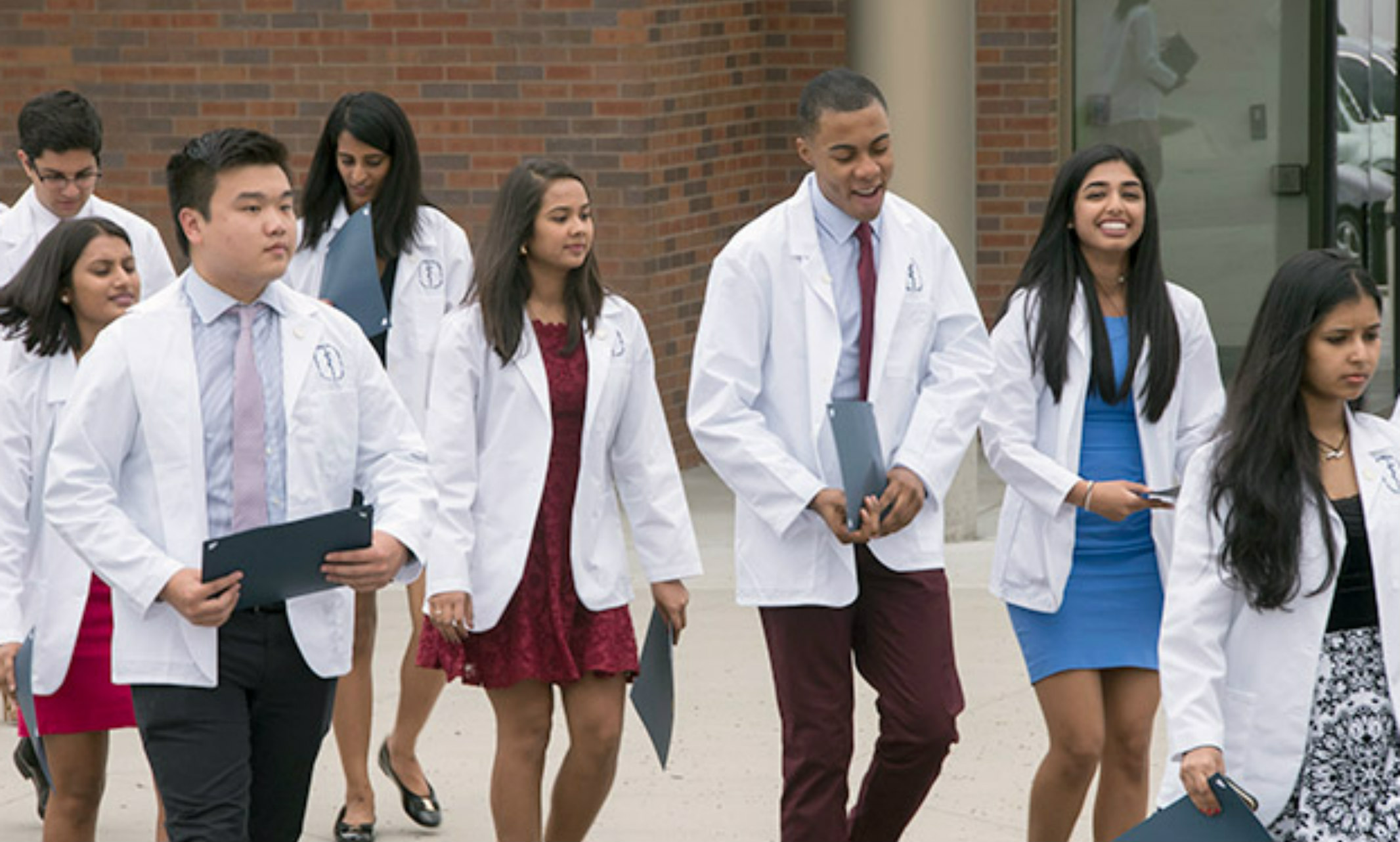
Committee announced; final candidates expected by spring 2020
UMKC Chancellor Mauli Agrawal has appointed a committee to lead a nationwide search for a new dean for the UMKC School of Medicine.
Barbara Bichelmeyer, provost and executive vice chancellor, will chair the committee. The search committee will work with Isaacson Miller, an executive search firm specializing in academic medical centers and healthcare institutions. The committee will begin the search process in October, considering local candidates and those from across the country, with the goal of holding interviews with final candidates in spring 2020. Conducting a search in this fashion is considered a best practice for senior leadership positions at a university.
Mary Anne Jackson, who has served as interim dean since July 2018, will continue to serve as interim dean during the search process. She was appointed the Special Advisor to the Chancellor on Health Affairs, and will assist in the search process. The American Academy of Pediatrics Section on Infectious Diseases will present Jackson with a Lifetime Achievement award on Oct. 28. Read a Children's Mercy article about her career.
The search committee represents campus and community leaders in the health professions – people who understand the vital role that the UMKC School of Medicine plays in the overall health of our community and region, and the importance of strong, visionary leadership for the school.
The committee is searching for a leader to build on the school’s reputation for innovative and highly effective medical education.
Founded in 1971, the UMKC School of Medicine is a docent model of medical education in which students begin training directly after high school, completing a combined baccalaureate/Doctor of Medicine program, which allows students to graduate in six years with their medical degree prior to beginning residency. The school’s innovative curriculum provides students with early and continuous patient-care experience and fully integrates liberal arts/humanities, basic sciences and clinical medicine. Students begin learning about medicine and interacting with patients from the first day of class. They also learn the skills and attitudes that foster compassion, honesty and integrity. Hands-on learning and clinical experience are integrated throughout all the years of the program.
Search Committee
Barbara Bichelmeyer, chair, provost and executive vice chancellor, UMKC
Jannette Berkley-Patton, professor, UMKC School of Medicine
Denise Bratcher, physician, Children’s Mercy, and professor of pediatrics, UMKC School of Medicine
Diana Dark, physician, and associate dean of Saint Luke’s Health Programs and professor, UMKC School of Medicine
Marc Hahn, president and CEO, Kansas City University of Medicine and Biosciences
Jani Johnson, CEO, Saint Luke’s Hospital of Kansas City
Peter Koulen, professor, UMKC School of Medicine
Kamani Lankachandra, president, Truman Medical Centers medical staff, and professor and chair of pathology, UMKC School of Medicine
Chris Liu, vice chancellor for research, UMKC
Russell Melchert, dean, UMKC School of Pharmacy
Paula Monaghan Nichols, professor and associate dean, UMKC School of Medicine
Marion Pierson, physician, Village Pediatrics
Megan Roedel, chief operating officer, Center for Behavioral Medicine of the Missouri Department of Mental Health
Charlie Shields, president and CEO, Truman Medical Centers
Gary Salzman, professor, UMKC School of Medicine
Nathan Thomas, associate dean of diversity and inclusion, UMKC School of Medicine
Kevin Truman, dean, UMKC School of Computing and Engineering
Timothy Weber, student, UMKC School of Medicine
Oct 10, 2019
American Board of Radiology featured radiologist Amy Patel
Amy Patel, M.D. was one of five finalists for the Champions of Hope award. Patel is a breast imaging specialist at Liberty Hospital in Missouri and assistant professor of Radiology at the UMKC School of Medicine.
Oct 08, 2019
Partnership to provide comprehensive care for student-athletes
Kansas City Athletics and Truman Medical Centers/ University Health (TMC) are announcing the creation of a winning healthcare partnership.
Kansas City Roos' Director of Athletics Dr. Brandon Martin and TMC President and CEO Charlie Shields say when a university and an academic medical center team up, it creates new and exciting opportunities. Especially in areas that matter to the community, like health, education, and athletics.
This partnership means TMC/ University Health will be known as the "Official Healthcare Provider of Kansas City Athletics." The providers at TMC/ University Health will help keep student athletes at their healthiest by providing quality, comprehensive care and education about living their healthiest lives.
"Truman Medical Center's founding mission includes our commitment to partner with others in the community to improve the quality of life, and we believe this aligns with that goal. We would not be an Academic Medical Center without our very important partnership with UMKC's schools of Medicine, Pharmacy, Nursing and Dentistry and this sponsorship is one more way of aligning with UMKC. As it works with us to keep the community healthy, we get to work with the university to ensure its student athletes stay in great shape, or get back on track after an injury. It helps that our academic clinicians train the doctors and health professionals of the future, staying ahead of the curve in healthcare. What's good for Kansas City, will be great for Kansas City Athletics," said Charlie Shields, president and CEO of Truman Medical Centers/ University Health.
TMC/ University Health is proud to be highlighted on signage and videoboards at UMKC, but is equally proud to let its patients know about this new extension to the TMC/ University Health – UMKC partnership. Other assets include TMC/ University Health serving as the presenting sponsor of both the official athletics website, KCRoos.com, and the soon-to-be released KCRoos app. TMC/ University Health will also be the presenting sponsor of the Roo Basketball Gala on Oct. 25 as well as KC's Crew, the official kid's club of Kansas City Athletics.
"This new partnership with TMC/ University Health is another giant jump forward for the Roos," said Dr. Martin. "We're proud to work with our friends at TMC/ University Health to create a meaningful partnership that will benefit us all and set the bar for similar partnerships across campus."
About Truman Medical Centers/ University Health
Truman Medical Centers (TMC)/ University Health offer essential, state-of-the-art care to Kansas City. From a Level One Trauma Center, to the birthplace of nearly half of all babies born in Kansas City, MO, our dedicated experts provide a range of healthcare services. Caring for patients at both TMC/ University Health, our specialists treat chronic diseases, chronic pain, high risk pregnancies, sickle cell anemia and sleep disorders. Our state-of-the art Richard and Annette Bloch Cancer Center is home to comprehensive cancer care, designed to help our patients through their diagnosis and journey. TMC/ University Health's beautiful new outpatient care and day-surgery center- the only outpatient surgery center in downtown KC- offers 15 clinics and multiple primary care practices including the Sabates Eye Center, Plastic Surgery, Obstetrics & Gynecology, Orthopedics and Medical Imaging with Siemens 3D Mammography. We offer the area's most comprehensive behavioral health program in addition to a long-term care facility and multiple primary care practices throughout eastern Jackson County. TMC/ University Health is a primary teaching hospital for the University of Missouri-Kansas City Schools of Medicine, Nursing, Pharmacy and Dentistry so our doctors are academic specialists who teach the providers of the future.
About the University of Missouri-Kansas City
The University of Missouri-Kansas City, one of four University of Missouri campuses, is a public university serving more than 16,000 undergraduate, graduate and professional students. Located in the heart of a thriving urban setting, the university is surrounded by arts, entertainment, culture and sports. The university engages with the community and economy based on a four-part mission: life and health sciences; visual and performing arts; urban issues and education; and a vibrant learning and campus life experience. The small class sizes give students a personal education and create a small-college feel, while Kansas City's metropolitan environment provides extensive opportunities for internships and networking as well as culture and entertainment.
About Kansas City Athletics
Kansas City Athletics is a NCAA Division I member and in its seventh year of membership in the Western Athletic Conference. Under the guidance of Director of Athletics Dr. Brandon Martin, the Roos field 16 varsity sports with 240-plus student-athletes. During the summer of 2019, the athletics department announced a new logo and re-branding, switching from UMKC Athletics to Kansas City Athletics. For more information, visit KCRoos.com or follow us on social media @KCRoosAthletics.
Oct 07, 2019
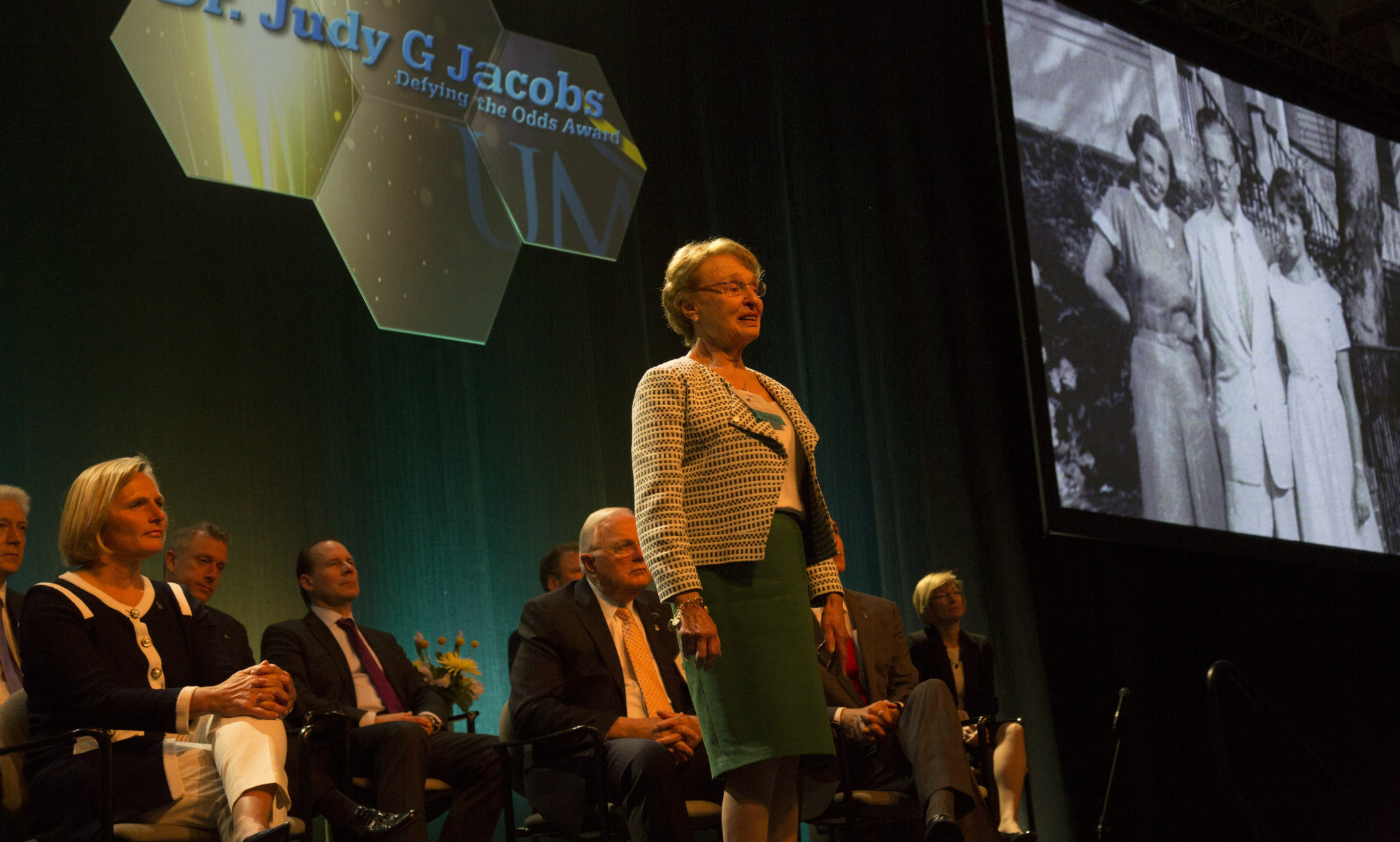
Judy Jacobs is one of 70 survivors photographed for "Lest We Forget"
Alumna Judy Jacobs' portrait by Luigi Toscano is featured in "Lest We Forget," a Holocaust memorial exhibit at the World War I Museum and Memorial courtyard through Oct. 6.
Judy Jacobs (MBA '77, Ph.D. '86) was the 2016 University of Missouri-Kansas City Defying the Odds Alumni Award recipient. She previously shared her powerful story with us. Here's our discussion about her childhood in Hungary and time in the Bergen-Belsen camp.
What was your childhood like before that horrible day in 1944?
My early childhood in Budapest was idyllic. We were an upper middle-class family, with a lovely home and an enviable lifestyle. I am an only child and my parents gave me all the attention I craved. I was also the only grandchild on my mother’s side. I had many aunts, uncles and cousins in Budapest. The relatives, coupled with a large number of friends, provided a happy environment. Although my father was a busy radiologist, he always had time for me. In the winters we ice skated together every day. My mother was credentialed in art and design. She and I spent many hours on craft projects and making doll clothes. I spent much of every summer with my maternal grandparents in Bekes, a small town in southeast Hungary, allowing me to enjoy the outdoor activities unavailable to a city dweller.
There was more than one “horrible day.” The quality of our lives steadily deteriorated as anti-Semitism became institutionalized, beginning about the time Hungary joined the Axis in 1943. From then on, we increasingly felt the general effects of the War and were subjected to an ever growing list of restrictions because we were Jewish.
The Nazis occupied Hungary on March 19, 1944, marking the beginning of the end for Hungarian Jewry. From then on our lives were defined by fear, deprivation and uncertainty. Our time outdoors was limited to a few hours in the afternoon. The Nazis often sealed off both ends of a given block and arrested all Jews there, who were easily identified by the yellow stars on their outer garments. Some were jailed, some were immediately deported to a concentration camp and others were marched to the Danube where they were shot into the river. We were barred from using any type of transportation and our mail and newspapers were censored. We never knew what would happen next. As a young child, I was always frightened.
How do you describe life in Bergen-Belsen when sharing your story?
Life in Bergen-Belsen was hell! The Nazis referred to us as subhuman, and treated us accordingly. We suffered no direct physical abuse, but the psychological degradation to which we were subjected is indescribable. During daily roll call, the Nazis brandished their whips and menacingly pointed their guns at us; they repeatedly called us vermin unworthy of living, filthy pigs and parasites. As a seven-year-old child I began to wonder if I really was a subhuman, filthy, Jewish pig.
Our daily rations of about 350 calories were barely edible. There were bunks in our filthy and unventilated barrack; three abreast and three high. They were covered with dirty straw. Vermin of all kinds including mice, rats, bedbugs and fleas became our constant bedfellows. There was no hot water or soap. Such unsanitary living conditions and substandard diet caused extensive disease, but the Nazis provided neither medical care nor drugs or supplies.
"I was seven years old in the concentration camp. I lived in constant fear, fear of Nazi terror, fear of being separated from my parents and fear of the unknown." —Judy Jacobs
Many hopeless inmates spent most of the day on their bunks, with eyes glazed. My parents recognized the importance of maintaining their humanity. My father and some of his colleagues organized “clinics” for the sick. They had neither equipment nor supplies but they were able to provide a modicum of care, mostly in an advisory capacity. By helping fellow inmates, they were able to regain some dignity and, thus, their humanity. My mother, despondent as the rest, recognized the importance of morale and she taught drawing to some interested children. With no available art supplies, she used a stick and the dirt at her feet instead of drawing paper and pencils.
I was seven years old in the concentration camp. I lived in constant fear, fear of Nazi terror, fear of being separated from my parents and fear of the unknown. I had nothing to do most of the time and just followed my parents around, intently listening to their conversations and always keeping my eyes cast downward, hoping not to be noticed. According to my birth certificate I was a seven-year-old child. In reality I was seven years old, but I had no opportunity to be a child.
How were you liberated from Bergen-Belsen?
We had come to Bergen-Belsen on the Kasztner Train, a rescue operation named after the man who organized it. Kasztner reached a deal with the Nazis whereby they agreed to transport a trainful of Jews (ultimately 1,686) to the safety of a neutral country for about $1,000 per person. They received a portion of the money in advance; the balance was payable when the train reached its destination. Instead of a neutral country, the train went to Bergen-Belsen. Desperate for money near the end of the War, the Nazis released us to Switzerland and received the balance due at the Swiss border.
In June, we had gone to Bergen-Belsen in overcrowded, filthy cattle cars. Six months later, we left the train station in a heated passenger train, not knowing where we were headed. The Nazis provided edible food. I remember sardines and chocolate. We realize we had been freed as we heard the church bells of St. Gallen, Switzerland.
Oct 03, 2019
Christopher Garmon talks to The Sun Chronicle
Christopher Garmon, an assistant professor of health administration at the UMKC Bloch School, specializes his research on surprise bills and says that ambulance bills can be staggering.
Oct 01, 2019
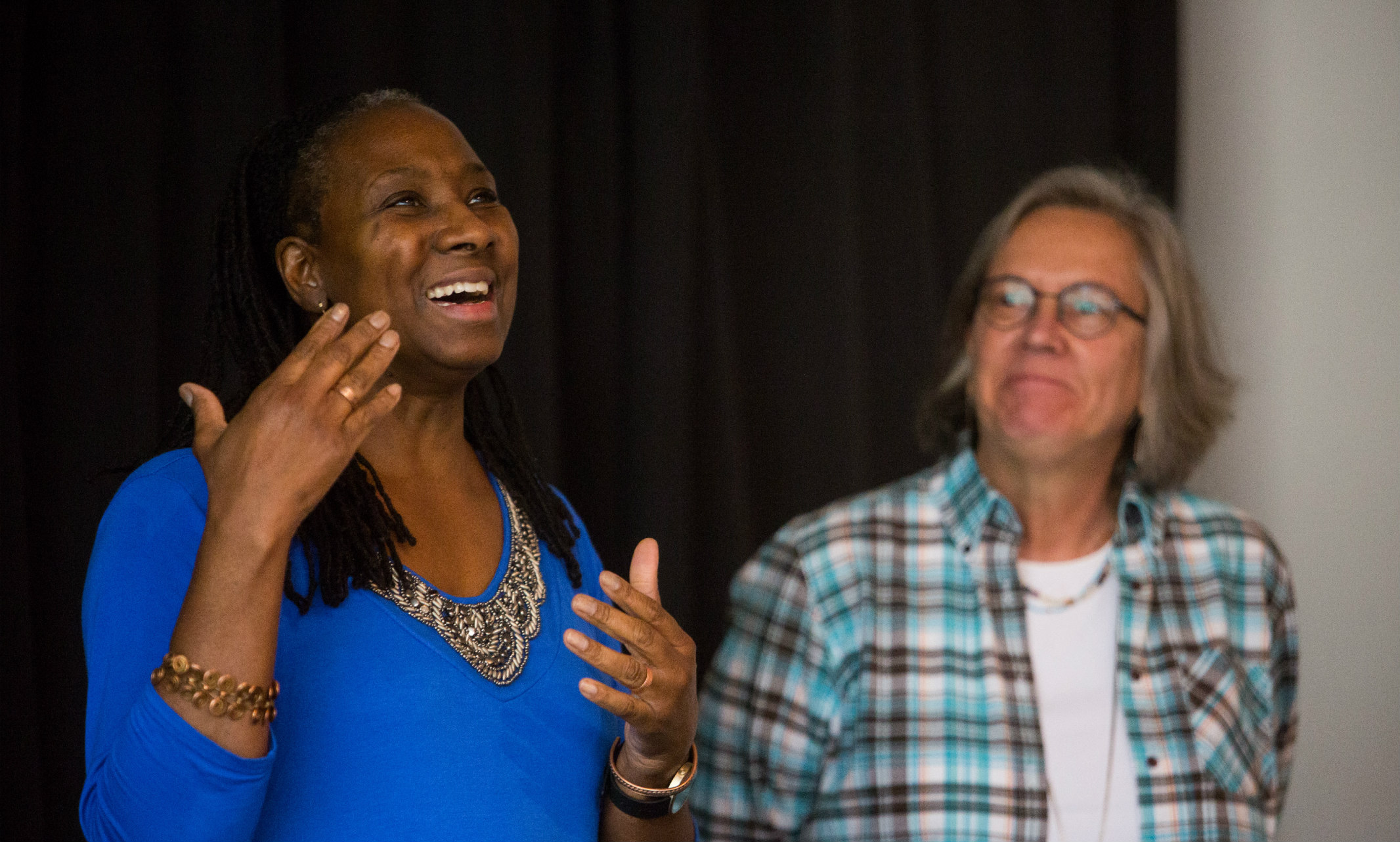
Second round of funding awarded
Grandparents are increasingly becoming the primary caregivers for their grandchildren. The UMKC Psychology Department at the College of Arts and Sciences has recently received a second round of funding from the Health Forward Foundation for a program that supports grandparents in this role.
More than 2.5 million grandparents in the United States are raising grandchildren, according to the 2017 U.S. census. Compared to non-relative foster homes, the children living with their grandparents are more likely to have a permanent home, less likely to run away and are more likely to report feeling loved and stay in contact with extended family.
“Our grandparents are fiercely independent and the idea of a ‘support group’ was not attractive.”
-
Joan McDowd, professor of psychology and director of gerontology programs
While this speaks well of the relationships, there are significant – and often overlooked - challenges for grandparents in this situation.
Recognizing the need, Joan McDowd, professor of psychology and director of gerontology programs at UMKC, has developed a program for these older adults who are managing a second round of parenting.
“Four years ago, I stared exploring the possibility of collaborating with a community-based partner,” McDowd said. “I connected with Palestine Missionary Baptist Church and Senior Citizens Activity Center and started talking to people. We thought an intergenerational program would be interesting.”
The team began to talk with grandparents in the community at churches and health fairs as well as the grandparents at Pemberton Park, an apartment complex specifically designed by the Housing Authority of Kansas City for “grandfamilies.”
“We set up tables at health fairs to do a needs assessment,” McDowd said. “We threw a Halloween party so that the grandparents could take a break and the kids could have fun.”
This informal information gathering led to a pilot project with Palestine Church hosting monthly meetings for grandparents. Once the team determined what was working, they submitted a request to Health Forward and received funding.
“As a foundation, we are always interested in how to support collaborative efforts that bring in the stakeholders as part of a larger community-wide project,” Andres Dominguez, senior program officer for the Health Forward Foundation said. “This grant seeks to address a concern of engaging an intergenerational approach to sustained family well-being.”
“The first year of funding allowed us to develop a series of meetings on topics that the grandparents had identified,” McDowd said. “We had lawyers address family law. We invited a financial planner to discuss preparing for the future. We hosted psychologists to talk about trauma and self-care.”
In addition to these “Saturday Sessions”, the team tried to set up smaller support groups so grandparents could use one another as resources for emotional or practical support. McDowd’s team created leaders’ manuals on how to organize a group and what subjects to cover. They created YouTube videos where they play-acted how to handle difficult situations like managing someone who talks too much or the person who doesn’t talk at all. However, when the team tried to organize support groups, grandparents hesitated to join.
“Our grandparents are fiercely independent, and the idea of a ‘support group’ was not attractive,” McDowd said. “But when we would ask what was working and what they wanted more of, they would often say, ‘More time to share our stories,’ or ‘More time to talk.’ But ‘support group’ had a negative connotation.” Using this feedback, the team has now developed a program component called “Grandparents Café” that provides the opportunity for grandparents to break into small groups and discuss topics of the day.
“If grandchildren are living with their grandparents, often it is because something bad has happened,” McDowd said. “Still there’s no law that says that if something happens you have to take your grandchildren. These people have stepped up.”
Danita Hoard, B.A. ’16, M.S.W. ’19, worked with McDowd gathering information determining grandparents’ needs and developing the program manual.
“I was interested in this program because I was raised by my grandmother,” Hoard says. “It was great to see that these meetings allowed the grandparents to work through the trauma their grandchildren were facing, but also connect with other grandparents and programs. But it also made me aware that growing up my needs were being met, but I wasn’t aware of what of my grandmother experienced.”
It's not unusual that even the people closest to these situations overlook the strain that grandparent caregivers are under. McDowd thinks that is why the program has been successful.
“I’ve really seen the grandparents come out of their shells because they can relate to both the subject matter and each other. The speaker may be talking about the financial planning - that's all super important information, but when you get down to it, they are hurting and when a facilitator is addressing those issues it becomes much more powerful. What we're doing has become more powerful.”
The success of these sessions – and the resulting sustainability plan - led to a second round of funding from the Health Forward Foundation.
“Joan and her team have shown us that they have the ability to take what has already been accomplished and build on it,” Dominguez says. “Reinvestment can always add value to our grant work. In addition, programs and projects like this are able to reach seniors and bring life to the concept of age-friendly communities. As this city and nation ages, and with baby boomers now being at the cusp of ‘retirement,’ projects that can share their findings and accomplishment can become models for replication.”
Oct 01, 2019
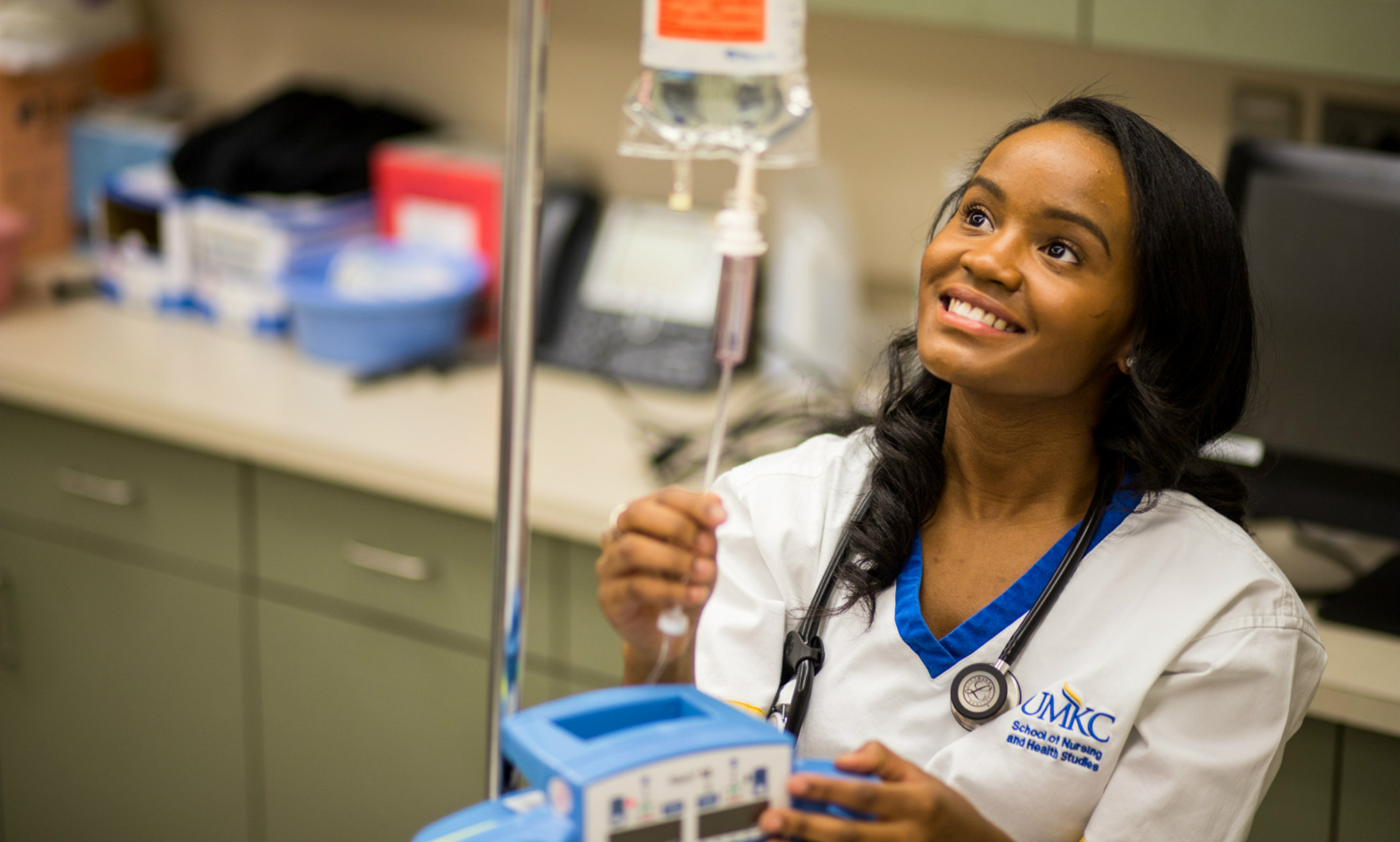
UMKC provided key connections and support
Get to know our people and you’ll know what UMKC is all about.
Alauna Christian '19 Hometown: St. Louis, Missouri High School: Clyde C. Miller Career Academy Degree program: Nursing Career: Nurse at VA Hospital and Signature Psychiatric Hospital
Why did you choose UMKC?
I selected UMKC because of its reputation for health-care professions. Initially I wanted to go through the six-year medical program when I decided to apply here. However, I realized the patient connection I thrived in was within the field of nursing. Visualizing the way nurses cared for my family members throughout their illnesses created a passion in myself to do the same for others.
UMKC offered me a lot of different opportunities, including scholarships, internships and connections. They helped me develop my leadership skills and land the career I wanted in nursing.
Tell us about your internships.
I completed an internship at the Kansas City VA Hospital in their VALOR Program. It allowed me to understand the socioeconomic struggles our veterans endure throughout their lives. I enjoyed working with this population because I learned a lot about critical care and mental illness. This experience confirmed my career aspirations to become a psychiatric nurse practitioner.
"UMKC offered me a lot of different opportunities, including scholarships, internships and connections. They helped me develop my leadership skills and land the career I wanted in nursing."
Why do you focus on mental illness?
I think mental health is definitely an aspect that has been ignored and is broken in the community. Growing up seeing people with mental health issues, and understanding how people in the African American community suffer from mental illness, I've always wanted to identify the reason behind that. And help people who have it. And not just the people who have mental illness, but the people and their families.
What was the nursing program like?
The challenges of the nursing program are time management and critical thinking. It is important to balance studying and clinical hours. The benefits to the program are the number clinical hours and variety of clinical sites offered. UMKC gave me the opportunity to visit several health-care facilities for the specialties within our program. For example, UMKC has clinical rotations for pediatrics, community health, mental health, obstetrics, critical care and many more.
How has your program inspired you?
It has inspired me to further my education in mental health and receive my Doctorate in Nursing Practice for psychiatric mental health. My future plan is to establish a nonprofit organization to assist those with mental illness and raise awareness within the community. UMKC has inspired me to evolve into a leader in the nursing community.
What extracurricular activities were you involved in at UMKC?
I was involved in a lot of student organizations on campus and held a lot of leadership positions. I was the president of the Student Council of Nursing and Health Studies, vice president of the Student Nursing Association, selection chair for the Mortar Board Honor Society and a mentor for nursing students.
"Growing up seeing people with mental health issues, and understanding how people in the African American community suffer from mental illness, I've always wanted to identify the reason behind that."
What UMKC experiences are you taking into your professional career?
I hope to take the experiences of mentorship into my professional career as a nursing. I would like to help other students reach their career aspirations to become a nurse because I was also mentored into my position. The mentors at the Multicultural Student Affairs Office helped me to succeed during the first couple years of my college career.
Oct 01, 2019
IN Kansas City magazine catches up with the renowned Conservatory professor
The magazine caught up with Chen Yi, a doctor of musical arts and Lorena Searcy Cravens/Millsap/Missouri Distinguished Professor in Music Composition at UMKC.
Oct 01, 2019
